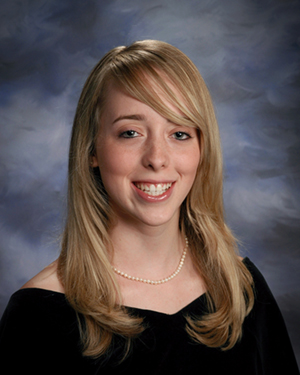 Sarah was awarded $550 by FFRF for her essay.
Sarah was awarded $550 by FFRF for her essay.
Price, policy, producers, profit, productive resources and property rights are topics of economics, not prayer. Sitting quietly at my desk, listening to anything but economics, I questioned my future role in the atheist movement. My heart was pounding and I felt my hands starting to sweat. To speak up or not to speak up, that was the question.
Did I want to speak up for atheism while suffering judgment or keep quiet and move on with my life? My brain was conflicted while my voice ruptured through resistance. All of a sudden I heard, “How can you compare atheism to smoking? Do you not think that crosses the line of what to say in a public school classroom?”
Someone had finally stood up — then the realization hit me, that someone was me.
Growing up, I always hid behind my parents when meeting someone new. I was the shy little girl who had the face of fright during elementary school plays and never wanted the leading role. I was the student who never spoke up if I felt like something was incorrect because I feared being an outcast. I never saw myself as an activist because I felt as though my quiet voice would drown in the sea of loud and outgoing people.
One day in the summer of 2012, that was tested in my economics class. We were all excited about the teacher and he was excited to see us. As the semester went by, I realized that his passion for passing on his knowledge was not focused on economics but on religion, prayer and spirituality.
Instead of teaching economics, he told us that certain historical people were among the greatest because of their spiritual enlightenment. He said it was human nature to have a spiritual and religious component, therefore making atheists seem unnatural. He went so far as to compare atheism to smoking, saying how the body originally rejects smoking is just like how “the mind rejects the concept of atheism.”
This was the breaking point for me. At that moment my voice felt so powerful and unstoppable, even though part of my brain was demanding to silence the neuron’s signals going toward my larynx. After I questioned the appropriateness of making such statements in a public school classroom, he shrugged it off with no reasonable reply.
But he didn’t stop. On the blackboard the next week, he drew arrows pointing up like a mountain while describing the positive effect prayer has on the state of mind. I knew something had to be done, but I had no idea where to start, having “come out” only the preceding November.
I felt like I was alone against his strong personality, that everyone else agreed with him. Even though I felt alone in the classroom, I knew I had the help of the online community group I call family. That night I posted my situation in the Houston Atheists Facebook group. My thoughts were reaffirmed — action had to take place.
I was directed to the Freedom From Religion Foundation, where I was able to get help from Staff Attorney Stephanie Schmitt. After various email exchanges, Stephanie wrote a wonderful letter to the superintendent of my school district.
A few friends in the same class were angry with me, saying I destroyed my teacher’s freedom of religion. But in reality, his actions were unconstitutional. This was economics class, not Sunday school.
From this experience, I learned that even though I grew up with a shy personality, I can still have a passionate and assertive voice that fights for what is constitutional.
Sara Elizabeth Sheppard, 19, was born in Houston and grew up in Katy, Texas. She plans to attend Lone Star College in Cypress and eventually transfer to a university. Sara interned as a pharmacy technician and will be certified this summer and will major in pre-pharmacy. She received a Mu Alpha Theta honor cord in high school because of her excellence in mathematics.

